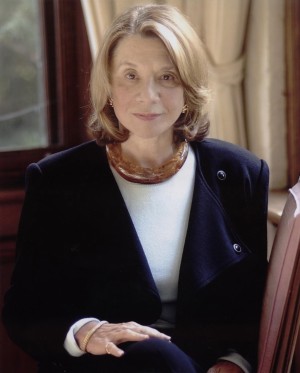Barbara Netter, scourge of cancer on the genetic level
“There is new hope in the fight against cancer, thanks to the landmark research in cancer cell and gene therapy that is successfully treating and healing patients in clinical trials,” said Barbara Netter, president and co-founder of the Stamford-based Alliance for Cancer Gene Therapy (ACGT).
“We”™re excited by the tangible results from the clinical trials ACGT has funded and the promise that this therapy holds as a viable treatment option for cancer patients.” She added, “It is a means of targeting specific gene and cell mutations, thereby reducing or eliminating the side effects of traditional chemotherapy and radiation treatments.”
As the nation”™s only not-for-profit exclusively dedicated to cancer cell and gene therapy treatments for all types of cancer, ACGT to date has awarded more than $24 million in grants to 42 prominent researchers in the U.S. and Canada.

“It”™s important to note that gene therapy was only an emerging field when we began,” she said. “The innovative research, led by some of the most renowned scientific minds, has spurred tremendous progress toward eradicating cancer in a relatively short period of time.”
Among the notable breakthrough clinical trials she cites are those conducted by fellow Dr. Carl June and his team at the University of Pennsylvania”™s Abramson Family Cancer Research Institute. The team successfully wiped out the leukemia cells in nine patients during their study and immunotherapy treatment efforts. Another is Dr. Michel Sadelain, director, Center for Cell Engineering at Memorial Sloan-Kettering Cancer Center, who led an unprecedented clinical trial that guided five patients suffering from acute lymphoblastic leukemia into complete, molecular remission with no detectable cancer cells.
At a time when government funding for medical research has been reduced, sustaining ACGT”™s critically needed innovative research has infused Netter and other members of the board of directors with an even stronger commitment to keep the organization on the path to success. “The fact of the matter is that without this foundation, research and understanding of gene and cell therapy would suffer tremendously,” Netter explained.
ACGT will seek partnerships with biomed companies and investors as it embarks on a strategic course of action to expand its donor base. To accomplish that goal, ACGT will leverage the unique combination of features and capabilities it has amassed in becoming the unique not-for-profit leader in its field. Among them is the fact that 100 percent of donations contributed go directly to research. Another is ACGT”™s Scientific Advisory Council comprised of 16 of the nation”™s preeminent gene therapy physicians and researchers. They are responsible for establishing the scientific criteria to review all grants, developing strict accountability guidelines as well as making recommendation for funding to the board of directors. Moreover, ACGT is uniquely positioned in its specialized field by having access to the top scientific minds at hundreds of medical universities and institutions.
A graduate of New York University and Iona College where she earned an M.S. as a pastor counselor and went on to have a successful private practice as a psychoanalyst, Netter marvels at how the “stars became aligned” a dozen years ago when she and her husband, Edward, got involved with gene therapy. It started with the loss of their daughter-in-law to breast cancer. Then, they met Dr. Savio Woo of Mount Sinai School of Medicine and Dr. Michael Lotze of the University of Pittsburgh who introduced the Netters to the possibilities and potential of cell and gene therapy for cancer patients.
“My husband and I were so enormously enthusiastic about putting our energies and resources into this field, which was just beginning to emerge,” she recalled. Up until two and a half years ago, Netter had served as chairman of the ACGT”™s special events. Following the death in 2011 of Edward, who had been a distinguished philanthropist and business leader, she assumed his role leading the foundation.
She finds strong similarities in the evolution of both herself and the foundation. “In the beginning, the work we did at ACGT was based on faith, not unlike the spiritual faith that was central to my studies as a pastoral counselor. In both cases, it”™s ultimately about striving to help people. Now, ACGT has results that have given hope to cancer patients that are truly palpable.” Netter also likens the work she did as a therapist and that of the foundation”™s scientific investigators as disciplines that seek answers to what lies hidden.
As for the foundation”™s future, she likes to quote Sadelain whose unprecedented and successful clinical trial turned around the lives of five cancer patients: “This is the beginning of a golden age in cancer treatment.”